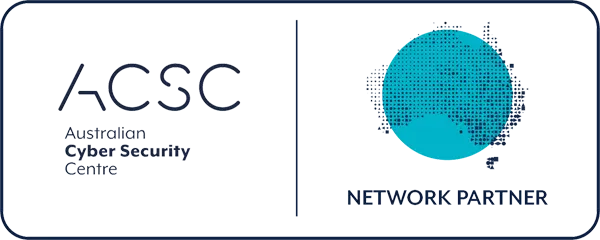In cybersecurity, technology often steals the spotlight. Firewalls, antivirus platforms, and advanced threat detection tools are essential, but they're only part of the story. The reality is that the greatest vulnerability in any organisation isn't a piece of hardware or software; it's the human element.
Employees, everyday users of email, cloud applications, and devices, are consistently the most common entry point for attackers. And while this can make the "human link" sound like the weakest link in the chain, workplace culture can flip that equation. With the right mindset and habits, people can become a company's most valuable line of defence.
At Managed Services Australia, we believe cybersecurity isn't just about the tools you buy. It's about the culture you build.
The Human Factor: Why People Are Targeted
Over 80% of successful cyber incidents worldwide involve human error at some point. Attackers don't always need to "hack" their way into systems when it's easier to trick an employee into giving them access.
- Phishing emails disguised as trusted contacts.
- Business Email Compromise (BEC) scams that look like invoice requests from a supplier.
- Social engineering phone calls impersonating IT support.
- Password reuse across multiple sites, leaving accounts exposed.
Employees are targeted because attackers know people are more likely to make mistakes under pressure, distraction, or urgency. A single click on a malicious link can undo millions of dollars of investment in security tools.
Culture as the Invisible Layer of Security
Cybersecurity policies and technologies only work if people follow them. That's where workplace culture plays a decisive role. Culture is the invisible layer that shapes whether staff:
- See cybersecurity as a shared responsibility, or as "IT's problem."
- Report suspicious behaviour quickly or stay silent out of fear.
- Build good security habits or find shortcuts around "inconvenient" controls.
If the culture around cybersecurity is weak, hygiene slips. People reuse passwords, skip updates, or fall for scams because they don't feel personally accountable for cyber risk. But when security becomes a normal part of everyday behaviour, like workplace safety or financial responsibility, the entire organisation strengthens.
From Weakest Link to Human Firewall
When the workplace culture supports it, employees stop being the weakest link and become a powerful human firewall. Here's how:
- Awareness as an early warning system
Employees trained to recognise phishing or unusual behaviour can act as real-time sensors, raising alerts before attackers gain a foothold.
- Accountability in daily choices
Staff who understand the value of company data are more likely to treat it carefully, from locking their screens to reporting lost devices.
- Action that limits damage
Quick, informed responses to mistakes (like clicking a suspicious link) can stop an incident from escalating into a full-scale breach.
The transformation is clear: instead of being exploited by attackers, people actively disrupt attacks.

Building a Strong Cybersecurity Culture
What truly differentiates MSA is our commitment to partnership. As a boutique provider, we offer high-touch, personalised service that many larger providers can't match. This allows us to become an extension of our clients' internal teams — deeply involved, responsive, and invested in long-term success.
We're not just solving IT problems. We're contributing to business outcomes.
Key Questions to Ask Your Current IT Provider
Changing culture takes leadership and persistence, but the payoff is immense. These are practical steps any organisation can take:
- Lead from the top
Executives and managers should model secure behaviour. When leadership uses password managers, enables MFA, and takes part in training, employees follow suit. Cybersecurity is taken seriously when staff see leaders doing the same.
- Make training relatable
Generic training sessions filled with jargon don't stick. Use real-world examples, like the recent Medibank or Optus breaches, to show why vigilance matters. Interactive phishing simulations and scenario-based workshops make learning practical.
- Encourage reporting, not blame
Fear of punishment is one of the biggest barriers to quick reporting. Employees must know that if they make a mistake, the worst action is not telling anyone. Normalising incident reporting reduces response time and builds trust.
- Celebrate good habits
Recognise teams and individuals who demonstrate strong security hygiene, whether that's spotting a phishing attempt or completing security checks diligently. Positive reinforcement helps embed these behaviours.
- Keep it simple
Complex instructions discourage compliance. Simple, memorable practices, like "Think before you click" or "Lock it when you leave", create sticky habits. Provide staff with concise checklists and quick references instead of long manuals.
Everyday Cyber Hygiene: Small Actions, Big Impact
Workplace culture is the foundation, but individual actions still matter. Everyday cyber hygiene doesn't require technical expertise, just consistency. Key examples include:
- Using strong, unique passwords or passphrases and storing them in a password manager.
- Enabling multi-factor authentication (MFA) wherever possible.
- Being cautious with emails and links, especially those with urgency or financial requests.
- Locking devices when unattended to prevent unauthorised access.
- Keeping software and apps updated to reduce vulnerabilities.
When an entire workforce makes these small steps habitual, the combined effect is a powerful resilience shield.
Why Cybersecurity Culture Matters More Than Ever
The cyber threat landscape is evolving quickly. Attackers are now using AI-generated phishing emails, deepfake voices, and automated attack tools that make scams harder to detect. At the same time, employees are working across multiple devices, from home networks, and often using cloud services without realising the risks.
No tool can guarantee 100% protection in this environment. But a strong security culture gives organisations adaptability. Trained, aware, and accountable employees help close the gap between evolving threats and technical controls.
Culture is the New Cyber Perimeter
Firewalls and antivirus tools create a perimeter around networks, but in today's hybrid, cloud-driven workplace, the new perimeter is people.
When employees understand their role in security and feel empowered to act, they stop being the weakest link. Instead, they become a living, breathing firewall, the cultural perimeter that protects the organisation from within.
At Managed Services Australia, we work with businesses across Melbourne and beyond to not only implement the latest security technologies but also to foster the culture that makes them effective. Cybersecurity is not just IT's responsibility, it's a shared responsibility, woven into the everyday actions of every worker.
🔒Ready to Strengthen Your Cybersecurity Culture?
Get in touch withManaged Services Australia today to learn how we can help your business build resilience, protect your people, and turn your workplace into your strongest defence.
🌐 Explore our services at Managed Services Australia.
📧 Dial 1300 024 748, shoot us an email at [email protected], or schedule a session with one of our IT specialists.






